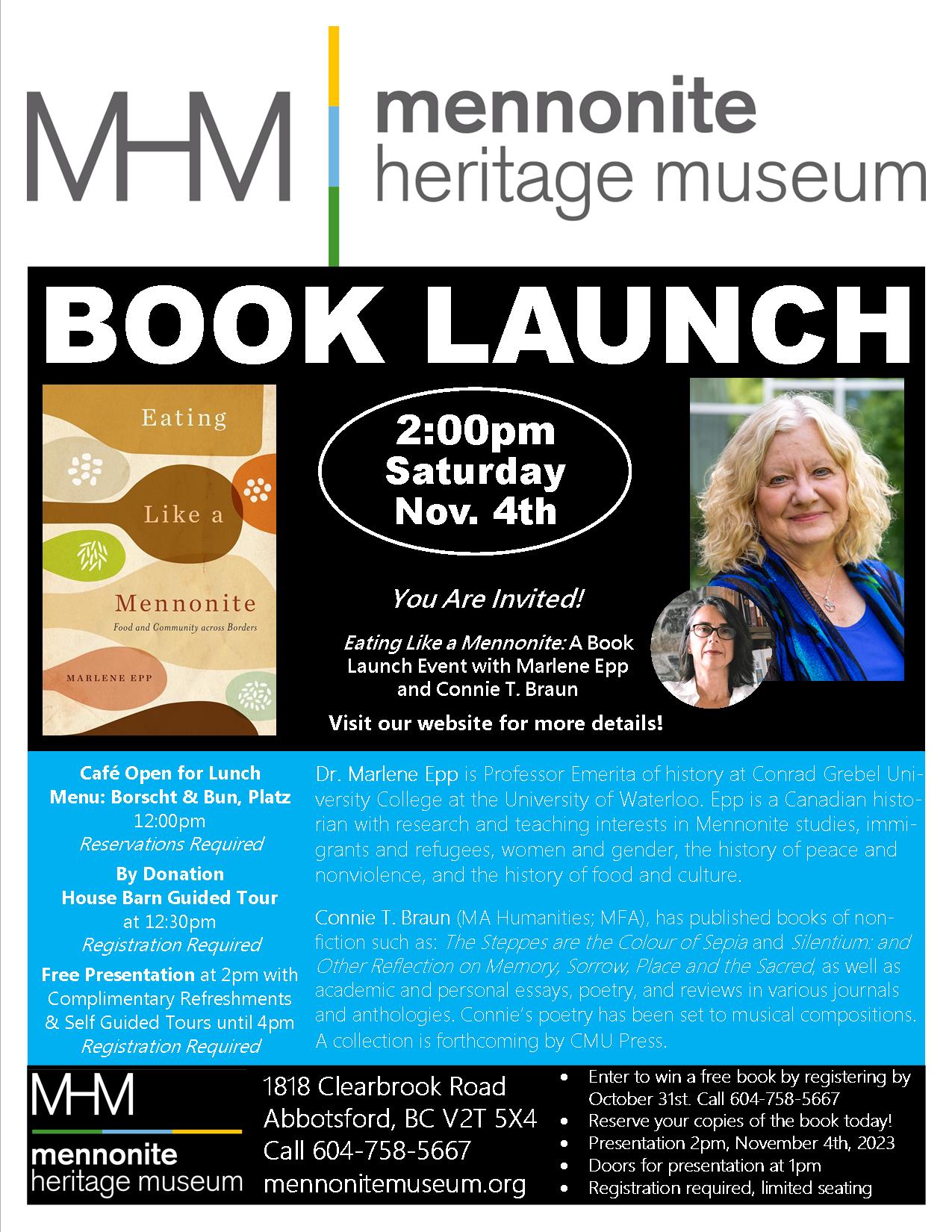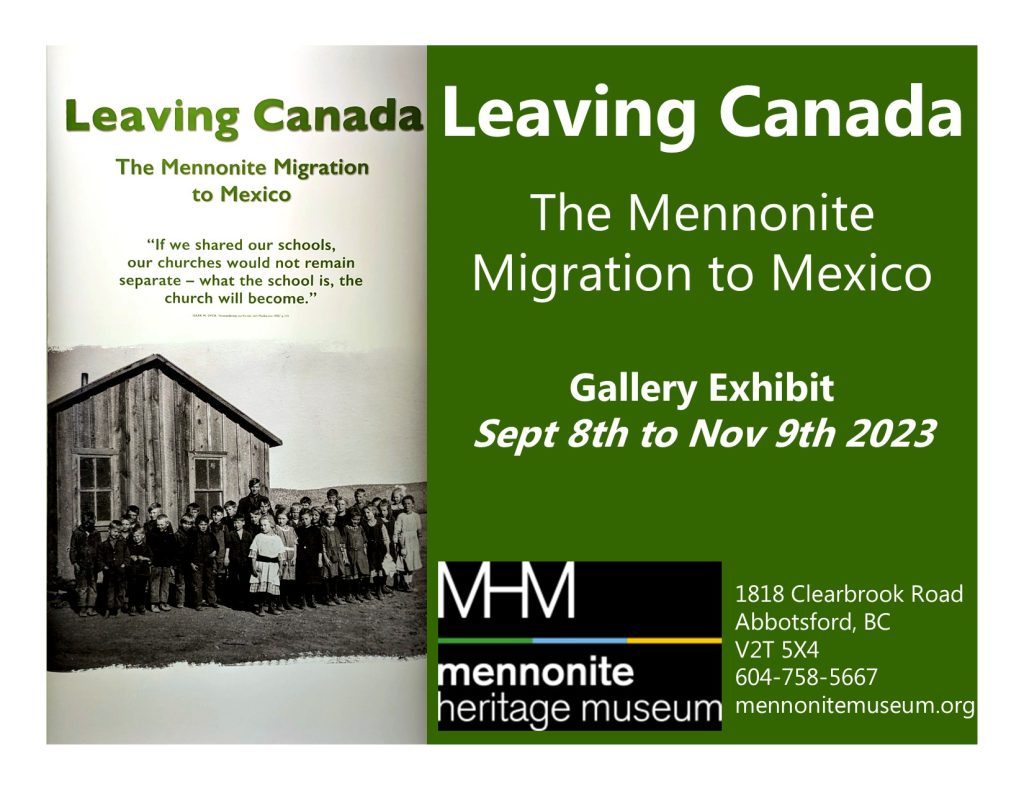You are invited!
Join us on November 4th for the West Coast book launch of Marlene Epp’s Eating Like a Mennonite!
Celebrate with us: the launch of Professor Emeritus Marlene Epp’s new book exploring the meaning of Mennonite foodways, around the table and around the world.
From zwieback to tamales and from sauerkraut to spring rolls, Eating Like a Mennonite reveals food as a complex ingredient in ethnic, religious, and personal identities, with the ability to create both bonds and boundaries between people.
Books will be available to purchase from our MHM Bookstore.
The MHM Cafe will be open for lunch (reservations recommended).
Presentation begins at 2pm (reservations recommended).
Call today to reserve your spot! 604-758-5667 (leave message after hours)
The Gallery Exhibit Leaving Canada will be open.

About the book
Mennonites are often associated with food, both by outsiders and by Mennonites themselves. Eating in abundance, eating together, preserving food, and preparing so-called traditional foods are just some of the connections mentioned in cookbooks, food advertising, memoirs, and everyday food talk. Yet since Mennonites are found around the world – from Europe to Canada to Mexico, from Paraguay to India to the Democratic Republic of the Congo – what can it mean to eat like one?
In Eating Like a Mennonite Marlene Epp finds that the answer depends on the eater: on their ancestral history, current home, gender, socio-economic position, family traditions, and personal tastes. Originating in central Europe in the sixteenth century, Mennonites migrated around the world even as their religious teachings historically emphasized their separateness from others. The idea of Mennonite food became a way of maintaining community identity, even as unfamiliar environments obliged Mennonites to borrow and learn from their neighbours. Looking at Mennonites past and present, Epp shows that foodstuffs (cuisine) and foodways (practices) depend on historical and cultural context. She explores how diets have evolved as a result of migration, settlement, and mission; how food and gender identities relate to both power and fear; how cookbooks and recipes are full of social meaning; how experiences and memories of food scarcity shape identity; and how food is an expression of religious beliefs – as a symbol, in ritual, and in acts of charity.
From zwieback to tamales and from sauerkraut to spring rolls, Eating Like a Mennonite reveals food as a complex ingredient in ethnic, religious, and personal identities, with the ability to create both bonds and boundaries between people.

Published by McGill-Queen’s University Press
Reviews
“While food studies is an increasingly popular field of research, there remains a continued tendency to neglect domestic food production. Eating Like a Mennonite makes a major contribution by examining these intimate and quotidian acts of nourishment. Moreover, it is a delight to read, and made me hungry for the foods of my childhood.” Janis Thiessen, University of Winnipeg
“Written in lively prose, Eating Like a Mennonite provides specific angles of entry into the broader topic of Mennonite self-identity and culture in a global context. Marlene Epp takes care to explore the foodways of Mennonites in such different regions of the world as Eastern Europe, India, China, Paraguay, Pennsylvania and Waterloo, Ontario. With each example, she traces foods prepared and packed for the journey, and how they come to represent comfort amidst discomfort, and familiarity in unfamiliar circumstances.” Nathalie Cooke, McGill University

About the Author
Marlene Epp is Professor Emeritus of history at Conrad Grebel University College at the University of Waterloo. Epp is a Canadian historian with research and teaching interests in Mennonite studies, immigrants and refugees, women and gender, the history of peace and nonviolence, and the history of food and culture.
About our Co-Presenter
Connie T. Braun (MA Humanities; MFA), has published books of non-fiction such as: The Steppes are the Colour of Sepia and Silentium: and Other Reflection on Memory, Sorrow, Place and the Sacred, as well as academic and personal essays, poetry, and reviews in various journals and anthologies. Connie’s poetry has been set to musical compositions. A collection is forthcoming by CMU Press.
